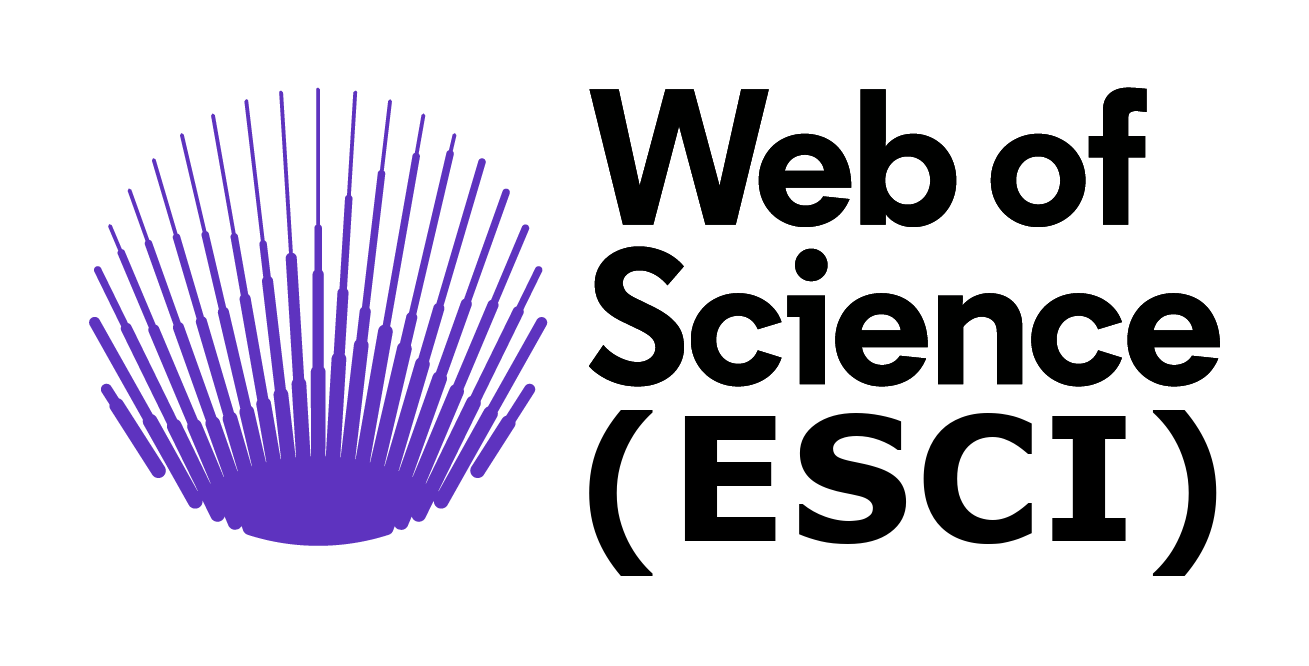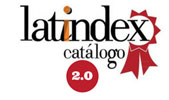Impact of Ecodriving on fuel emissions and consumption on road of Quito
DOI:
https://doi.org/10.29019/enfoque.v11n1.500Keywords:
ecodrive; Height; emission factor; route test; vehicle.Abstract
This article presents the results of the impact of ecodriving on fuel consumption and the emission factors of polluting gases from a gasoline vehicle when performing road testing in the city of Quito, located at 2 810 meters above sea level. A route with traffic validated by the Technology Transfer Center has been selected for the training and investigation of vehicle emission control. A Chevrolet Aveo Family was used as a test vehicle, , considering is the bestselling vehicle in the city at the moment. And the equipment used to measure fuel consumption and the concentration of emissions was an onboard gas analyzer and a canister. The success and the measuring of the data in this experimentation were determined using the STATGRAPHICS Centurion XVI software. The results showed significant differences in fuel consumption and pollutant emissions of CO and NOx when applying an efficient driving, except for the HC in which there is no significant difference, but the emission is lower when is used on standard driving.
Metrics
Downloads
References
AEADE. (2018). ANUARIO 2017. Quito. Retrieved from www.aeade.net
Andrade-Castañeda, H. J., Arteaga-Céspedes, C. C., & Segura-Madrigal, M. A. (2017). Emisión de gases de efecto invernadero por uso de combustibles fósiles en Ibagué, Tolima (Colombia). Corpoica Ciencia y Tecnología Agropecuaria, 18(1), 103–112. https://doi.org/10.21930/rcta.vol18_num1_art:561
Andrieu, C., & Pierre, G. Saint. (2014). Evaluation of ecodriving performances and teaching method: Comparing training and simple advice. In European Journal of Transport and Infrastructure Research.
Baric, D., Zovak, M., Perisa, M. (2013). Effects of Eco-Drive Education on the Reduction of Fuel Consumption and CO2 Emissions. Promet- Traffic&Transportation, 25(3), 262–272.
Barth, M., & Boriboonsomsin, K. (2009). Energy and Emissions Impacts of a Freeway-based Dynamic Eco-driving System. Transportation Research Part D: Transport and Environment, 14(6), 400–410.
Betella, A., & Verschure, P. F. M. J. (2016). The Affective Slider: A Digital Self-Assessment Scale for the Measurement of Human Emotions. PLOS ONE, 11(2), e0148037. https://doi.org/10.1371/journal.pone.0148037
Beusen, B., Broekx, S., Denys, T., Beckx, C., Degraeuwe, B., Gijsbers, M., & Panis, L. I. (2009). Using on-board Logging Devices to Study the Longer-term Impact of an Eco-driving Course. Transportation Research Part D: Transport and Environment, 14(7), 514–520.
Bishop, J., Stettler, M., Molden, N., & Boises, A. (2016). Engine maps of fuel use and emissions from transient driving cycles. Applied Energy, 183(1), 202–2017. Retrieved from https://doi.org/10.1016/j.apenergy.2016.08.175
Bottiglione, F., Contursi, T., Gentile, A., & Mantriota, G. (2014). The fuel economy of hybrid buses: The role of ancillaries in real urban driving. Energies, 7(7), 4202–4220.
Castillo, J. C., Restrepo, Á., Tibaquirá, J. E., & Quirama, L. F. (2019). Estrategias de eficiencia energética en vehículos livianos del transporte por carretera en Colombia. Revista UIS Ingenierías, 18(3), 129–140. https://doi.org/10.18273/revuin.v18n3-2019013
Emberger, G. (2017). Low carbon transport strategy in Europe: A critical review. International Journal of Sustainable Transportation, 11(1), 31–35. https://doi.org/10.1080/15568318.2015.1106246
Energy Information Administration. (2017). International Energy Outlook. Retrieved from https://www.eia.gov/outlooks/ieo/pdf/0484(2017).pdf
Fernandez-Rodriguez, A., Fernandez-Cardador, A., & Cucala, A. P. (2015). Energy efficiency in high speed railway traffic operation: A real-time ecodriving algorithm. In 2015 IEEE 15th International Conference on Environment and Electrical Engineering, EEEIC 2015 - Conference Proceedings. https://doi.org/10.1109/EEEIC.2015.7165181
Guardia, Y., Márquez, |José, Sánchez, V., Llanes, E., Rocha, J., & Peralta, D. (2018). Enhancements to the subject Statistical Design of Experiments for students of the Mechanical Engineering careere. Espacios, 39(30), 10. Retrieved from https://www.revistaespacios.com/a18v39n30/18393010.html
Ho, S., Wong, Y. & Chang, V. (2015). What Can Eco-driving Do for Sustainable Road Transport? Perspectives from a City (Singapore) Eco-driving Programme. Sustainable Cities and Society, 14, 82–88.
Ho, S. H., Wong, Y. D., & Chang, V. W. C. (2015). What Can Eco-driving Do for Sustainable Road Transport? Perspectives from a City (Singapore) Eco-driving Programme. Sustainable Cities and Society, 14, 82–88.
Kobayashi, I., Tsubota, Y., & Kawashima, H. (2007). Eco-driving simulation: Evaluation of eco-driving within a network using traffic simulation. In URBAN TRANSPORT. Retrieved from 10.2495/UT070701
Larue, G., Malik, H., Rakotonirainy, A., & Demmel, S. (2014). Fuel consumption and gas emissions of an automatic transmission vehicle following simple eco-driving instructions on urban roads. IET Intelligent Transport Systems, 8(7), 590–597. https://doi.org/10.1049/iet-its.2013.0076
Leguisamo, J., Celi, S., Noroña, M. & Puente, E. (2018). Estudio De Emisiones Contaminantes Producidas Por Un Motor MEP Con Transmisión Automática Y Transmisión Manual. INNOVA Research Journal, 3(4), 120–128.
Leguisamo, J., Llanes, E., Noroña, M., & Puente, E. (2018). Identificación Del Modo De Trabajo De Un Motor GDI Al Variar La Altura Mediante Una Prueba Estática a Ralentí y 2500 Rpm. INNOVA Research Journal, 3(7), 61–70.
Llanes Cedeño, E. A., Rocha-Hoyos, J. C., Peralta Zurita, D. B., & Leguísamo Milla, J. C. (2018). Evaluación de emisiones de gases en un vehículo liviano a gasolina en condiciones de altura. Caso de estudio Quito, Ecuador. Enfoque UTE, 9(2), 149–158. https://doi.org/10.29019/enfoqueute.v9n2.201
Magaña, V. C. (2014). Eco-driving: ahorro de energía basado en el comportamiento del conductor. Carlos III de Madrid. Retrieved from http://e-archivo.uc3m.es/handle/10016/19981
Mensing, F., Bideaux, E., Trigui, R., Ribet, J., & Jeanneret, B. (2014). Eco-driving: An Economic or Ecologic Driving Style? Transportation Research Part C: Emerging Technologies, (38), 110–121.
Morello, E., Toffolo, S., & Magra, G. (2016). Impact Analysis of Ecodriving Behaviour Using Suitable Simulation Platform (ICT-EMISSIONS Project). In Transportation Research Procedia. https://doi.org/10.1016/j.trpro.2016.05.252
Movilidad, S. de. (2014). Diagnóstico de la movilidad en el Distrito Metropolitano de Quito para el plan metropolitano de desarrollo territorial. Quito.
N. Haworth y M. Symmons. (2001). The relationship between fuel economy and safety outcomes. Monash University Accident Research Centre.
Orfila, O., Freitas Salgueiredo, C., Saint Pierre, G., Sun, H., Li, Y., Gruyer, D., & Glaser, S. (2017). Fast computing and approximate fuel consumption modeling for Internal Combustion Engine passenger cars. Transportation Research Part D: Transport and Environment, 50, 14–25. https://doi.org/10.1016/j.trd.2016.10.016
Orfila, Olivier, Saint Pierre, G., & Andrieu, C. (2012). Gear Shifting Behavior Model for Ecodriving Simulations Based on Experimental Data. Procedia - Social and Behavioral Sciences, 54, 341–348. https://doi.org/10.1016/j.sbspro.2012.09.753
Quichimbla, F., & Solís, J. (2017). Desarrollo de ciclos de conducción en ciudad, carretera y combinado para evaluar el rendimiento real del combustible de un vehículo con motor ciclo Otto en el Distrito Metropolitano de Quito. Escuela Politécnica Nacional.
Ramadhas, A. S., Singh, P. K., Sakthivel, P., Mathai, R., & Sehgal, A. K. (2016). Effect of Ethanol-Gasoline Blends on Combustion and Emissions of a Passenger Car Engine at Part Load Operations. In SAE Technical Paper. https://doi.org/10.4271/2016-28-0152
Rionda, Al. Martínez, D., Pañeda, X., Arbesú, D. & Jiménez, E. (2012). Sistema Tutor Para La Conducción Eficiente de Vehículos de combustion. IEEE-RITA, 7(3), 133–140.
Rocha-Hoyos, J. C., Tipanluisa, L. E., Zambrano, V. D., & Portilla, Á. A. (2018). Estudio de un Motor a Gasolina en Condiciones de Altura con Mezclas de Aditivo Orgánico en el Combustible. Información Tecnológica, 29(5), 325–334. https://doi.org/10.4067/S0718-07642018000500325
Rodríguez, R. A., Virguez, E. A., Rodríguez, P. A., & Behrentz, E. (2016). Influence of driving patterns on vehicle emissions: A case study for Latin American cities. Transportation Research Part D: Transport and Environment, 43, 192–206. https://doi.org/10.1016/j.trd.2015.12.008
Rolim, C., Baptista, P., Duarte, G., Farias, T., and Shiftan, Y. (2014). Quantification of the Impacts of Eco-driving Training and Real-time Feedback on Urban Buses Driver’s Behaviour. Transportation Research Procedia, 3, 70–79.
Rutty, M., Matthews, L., Andrey, J., & Del Matto, T. (2013). Eco-driver Training within the City of Calgary’s Municipal Fleet: Monitoring the Impact. Transportation Research Part D: Transport and Environment, 24, 44–51.
Secretaría de Ambiente. (2017). Informe Calidad del aire -2016 distrito Metropolitano de Quito. Quito. Retrieved from http://www.quitoambiente.gob.ec/ambiente/index.php/informes#informe-calidad-del-aire-2016
Stillwater, T., Kurani, K. S., & Mokhtarian, P. L. (2017). The combined effects of driver attitudes and in-vehicle feedback on fuel economy. Transportation Research Part D: Transport and Environment, 52, 277–288. https://doi.org/10.1016/j.trd.2017.02.013
Yanzhi, X., & Hanyan, Li., Haobing, Liu., Rodgers, M., & Guensler, R. (2017). Eco-driving for transit: An effective strategy to conserve fuel and emissions. Applied Energy, (194), 784–797. https://doi.org/http://dx.doi.org/10.1016/j.apenergy.2016.09.101
Zervas, E. (2011). Impact of altitude on fuel consumption of a gasoline passenger car. Fuel, 90(6), 2340–2342. https://doi.org/10.1016/j.fuel.2011.02.004
Published
How to Cite
Issue
Section
Copyright (c) 2020 Enfoque UTE

This work is licensed under a Creative Commons Attribution 3.0 International License.
The articles and research published by the UTE University are carried out under the Open Access regime in electronic format. By submitting an article to any of the scientific journals of the UTE University, the author or authors accept these conditions.
The UTE applies the Creative Commons Attribution (CC-BY) license to articles in its scientific journals. Under this open access license, as an author you agree that anyone may reuse your article in whole or in part for any purpose, free of charge, including commercial purposes. Anyone can copy, distribute or reuse the content as long as the author and original source are correctly cited. This facilitates freedom of reuse and also ensures that content can be extracted without barriers for research needs.
This work is licensed under a Creative Commons Attribution 3.0 International (CC BY 3.0).
In addition, the journal Enfoque UTE guarantees and declares that authors always retain all copyrights to the original published works without restrictions [© The Author(s)]. Acknowledgment (BY): Any exploitation of the work is allowed, including a commercial purpose, as well as the creation of derivative works, the distribution of which is also allowed without any restriction.























 Enfoque UTE - Facultad de Ciencias de la Ingeniería e Industrias - Universidad UTE
Enfoque UTE - Facultad de Ciencias de la Ingeniería e Industrias - Universidad UTE